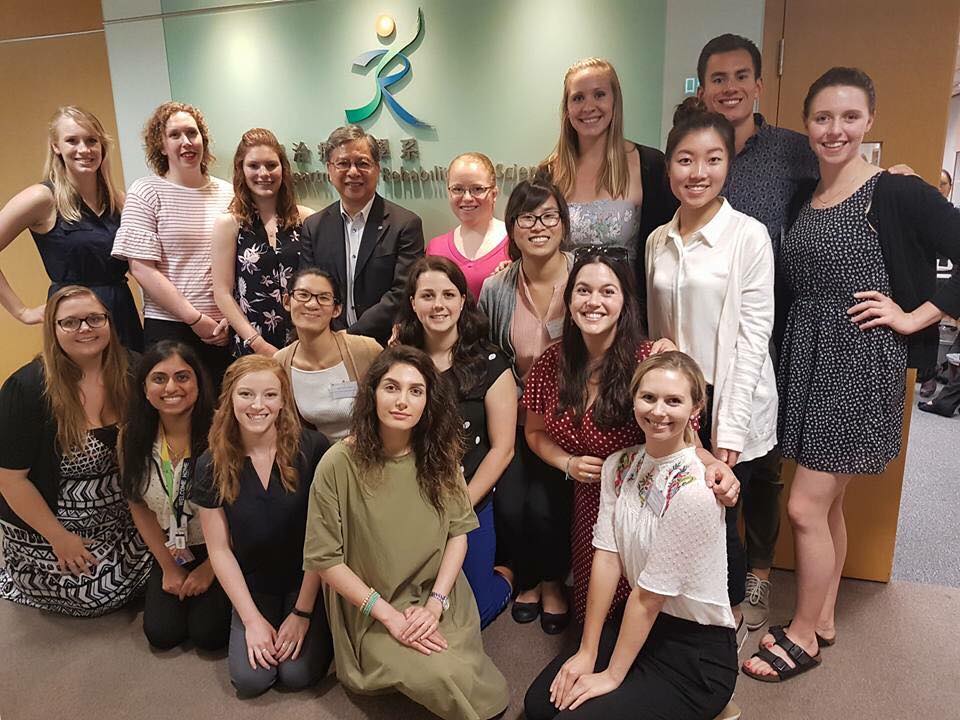
Occupational therapy and physical therapy students from the University of Alberta, Faculty of Rehabilitation Medicine traveled to Hong Kong for a two-week exchange program from June 27 to July 6. Students were able to get a glimpse of rehabilitation in another part of the world-a place where they experienced rich culture, connections and unique therapy techniques. (Photo supplied)
While occupational therapy and physical therapy practices are well-known in Alberta and Canada as a whole, the services in other parts of the world can look much different.
This is what occupational therapy and physical therapy students from the University of Alberta's Faculty of Rehabilitation Medicine learned when they traveled to Hong Kong this summer for the Summer Overseas Exchange Subsidy Scheme (SOESS) 2017 program.
The program, which was hosted by the Faculty of Rehabilitation Sciences at Hong Kong Polytechnic University, welcomed students from the Department of Occupational Therapy and the Department of Physical Therapy from June 27 to July 6.
Thanks to the two-week program, students were able to get a glimpse of rehabilitation in another part of the world-a place where they experienced rich culture, connections and unique therapy techniques.
"The entire experience of travelling to another country to see the similarities and differences in rehabilitation medicine practices was incredible!" said Zalak Patel, a second-year student in the MSc Occupational Therapy program. "For me, the highlights of the program were the many hands-on experiences students were involved in to better understand the practices of Hong Kong. This was provided through labs and hospital tours."
Forty students participated in the program, which included 16 Faculty of Rehabilitation Medicine attendees. The remaining 24 participants included students and practitioners from Australia, UK, US, Taiwan and Hong Kong.
"It gives a wonderful opportunity to see the perspective of different health-care professionals, and experiencing a different country is very useful for appreciating our own," says Kyrsten Blatt, second-year MSc Physical Therapy student. "I am very grateful to have met a variety of people that I can call friends and colleagues in different countries."
Overall, students were pleased with their trip, and were happy to be able to experience lab sessions, different rehabilitation technologies, and traditional Chinese medicine techniques.
And although there were many differences in the way Hong Kong practitioners treat patients in need of rehabilitation, the overarching idea is much the same.
"The biggest takeaway for me was experiencing how similar the field of rehabilitation is, regardless of which country you are in. The goal for us remained prioritizing the client and their family to help achieve their personal goals," says Patel.
For students who are interested in pursuing research or academic careers, as well as Chinese culture, second-year MSc Occupational Therapy student Negar Shenyari recommends taking part in the informative, hands-on program.
"I highly recommend this program. This trip was perfectly organized and all our needs were met. They would take time to get to know each of us individually and showed interest in our personal experiences. It's important to have that level of attention when you don't have a large amount of time.
It was a great experience for me. The more I learnt about different research projects and interventions, the more I became eager and determined to become a contributor to evidence-to my profession as a whole."
For more information about international programs or studying abroad, visit the University of Alberta International - Education Abroad website.